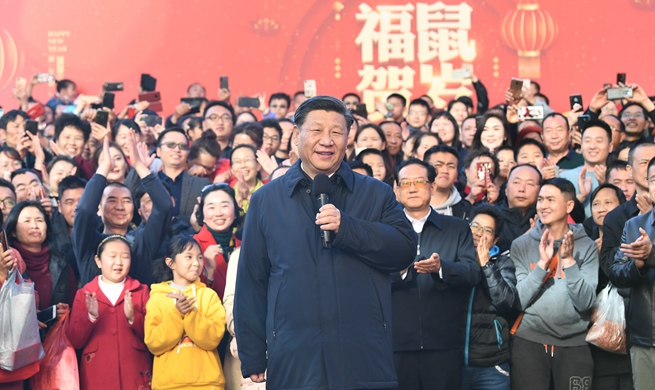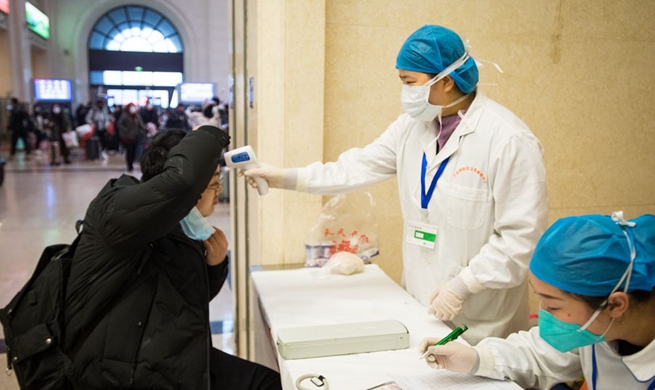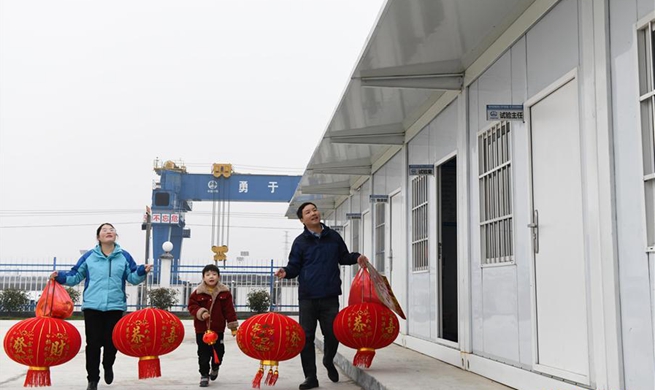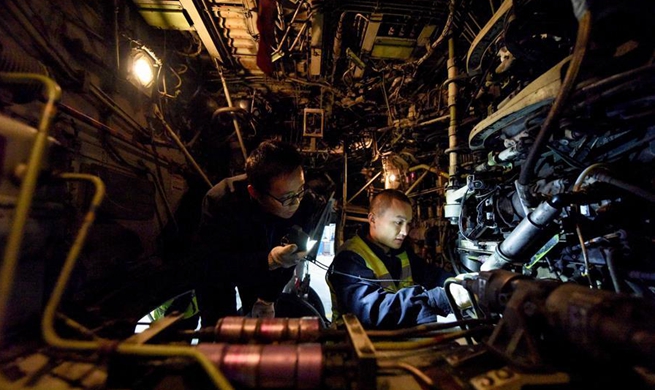ROME, Jan. 22 (Xinhua) -- Ocean scientists, experts and representatives from major Italian and international organizations have met at the UNESCO (United Nations Educational, Scientific and Cultural Organization) field bureau in Venice for a three-day workshop on how to keep the Mediterranean Sea clean, healthy, safe and sustainable.
The workshop, which kicked off on Tuesday and concludes on Thursday, was organized jointly by the Italian Oceanographic Commission (COI) and UNESCO on the occasion of the Decade of Ocean Science for Sustainable Development (2021-2030), which was declared by the United Nations (UN) under the slogan "The Ocean We Need for the Future We Want".
INTERCONNECTED WORLD
"We must build on an increasing recognition that in an interconnected world, such as ours is in the 21st century, the regional dimension continues to be a decisive, key level of intervention (in terms of) designing policies and interventions," UN Environment Programme Mediterranean Action Plan (UNEP-MAP) Coordinator Gaetano Leone told workshop participants during the live streamed event.
"Let's not forget that (the Mediterranean) region is where you have access to (many) important resources, and I don't mean only in terms of finance but also of research, technologies and creativity," Leone continued.
He also said that the marine environment is "in crisis" due to "rapid changes in the ocean that are not yet fully understood, unsustainable resource extraction, pollution (and) habitat destruction."
Italian Navy Admiral Andrea Romani told participants that while the Mediterranean makes up 3 percent of global seas, it is crossed by 19 percent of global maritime traffic and by 65 percent of all energy resources directed to Europe.
At least 25 percent of all oil tankers transit through Mediterranean ports, and the Italian port system contributes 2.6 percent of national gross domestic product (GDP) with 11,000 companies employing 93,000 people, according to Italy's National Research Council (CNR).
Italy is also the second largest fish producer in the Mediterranean and the Black Sea combined, according to the CNR.
CALL TO ACTION
"During this three-day workshop, the scientific community and representatives from top international organizations have the opportunity to get governments involved by proposing effective, concrete actions for a healthy, sustainable and safe Mediterranean," COI President Rosalia Santoleri, who also serves as the director of the CNR Marine Science Institute (ISMAR), said in a statement.
Priority topics include the use of marine resources, developing a sea economy through new technologies, safeguarding coastal ecosystems, and sharing data on negative environmental impacts, such as rising water temperatures, acidification and the destruction of marine habitats, Santoleri said.
The idea is to "raise awareness and mobilize everyone, from political decision makers to the public at large," said Santoleri, who believes that reversing the decline of the health of our seas is possible and cannot be put off any longer.
VENICE IN THE FRONT LINES
Massimiliano De Martin, Venice City Council member for the environment, told workshop participants that "our city experiences first-hand the effects of climate change. Floods are not the problem, but rather the frequency and intensity of these extreme events."
He said that Venice city authorities have come up with a long-term plan for the next 50 years designed to adapt the lagoon city to climate change, including ways to protect its heating and electrical systems, infrastructure and building facades.
Jonathan Baker, head of the UNESCO Science Unit, commented that "the Mediterranean is known for its history and culture but Venice "is at the frontlines of the climate emergency."
"It is clear that we need to act now, and that we need to use the knowledge, the expertise and the networks in this region to promote actions and decisions for a more sustainable future," Baker said.
"This is why it is very important today to use this opportunity of the UN Decade of Ocean Science for Sustainable Development not only to advance our ocean knowledge, but to enhance the science-policy interface, to promote education for sustainable development, and finally to protect our cultural heritage."
"UNESCO stands ready to help its member states in this complex endeavor," Baker said.
The Mediterranean workshop was convened following a first global planning meeting held in Denmark in May, and takes place in collaboration with the European Commission, the United Nations Environment Program (UNEP) and the Mediterranean Science Commission, organizers said.













